Sarina Satomi competed at the Tokyo 2020 Paralympic Games in the newly added event of para-badminton, and succeeded in winning gold medals in both the singles and doubles events. This momentous achievement came five years after a traffic accident in her third year of high school led her to become a wheelchair-user. Satomi, who says that her life began to shine once she discovered para-badminton, spoke with us about what she finds appealing about the sport and her enthusiasm for the Paris 2024 Paralympic Games.
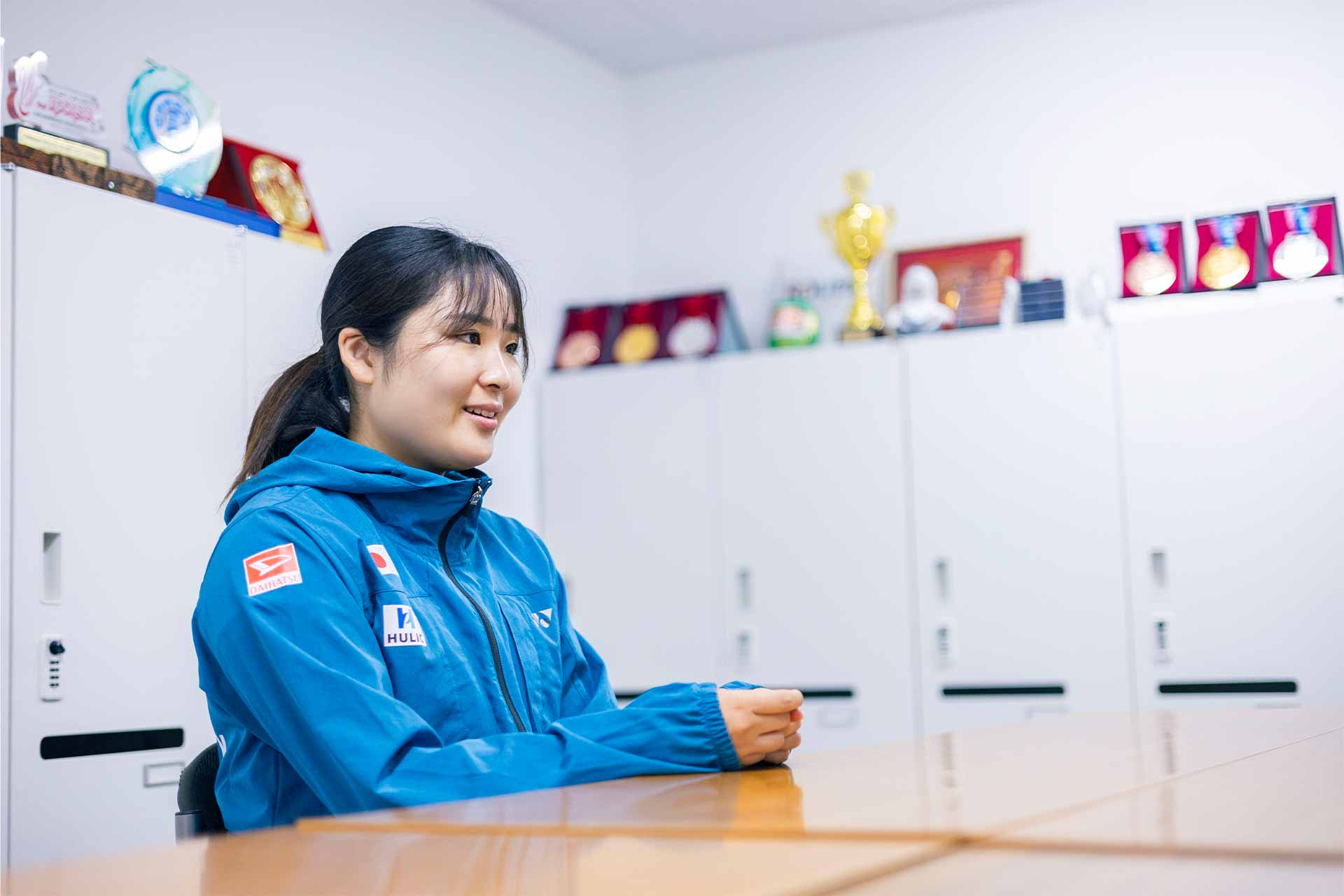
It was May of 2016, soon after you started your third year of high school. You suffered a spinal cord injury in a traffic accident, and you now live your life in a wheelchair. This event must have been a massive psychological shock to you, especially considering that you were in the height of your youth.
“I spent nine months in the hospital, and even after I went home, I didn’t ever feel like going out because I didn’t want people to see me in my wheelchair. When my dad saw how depressed I was, he took action. He tried to find a place near our house where we could play para-sports to give me a reason to get out and about. That was how I discovered para-badminton.”
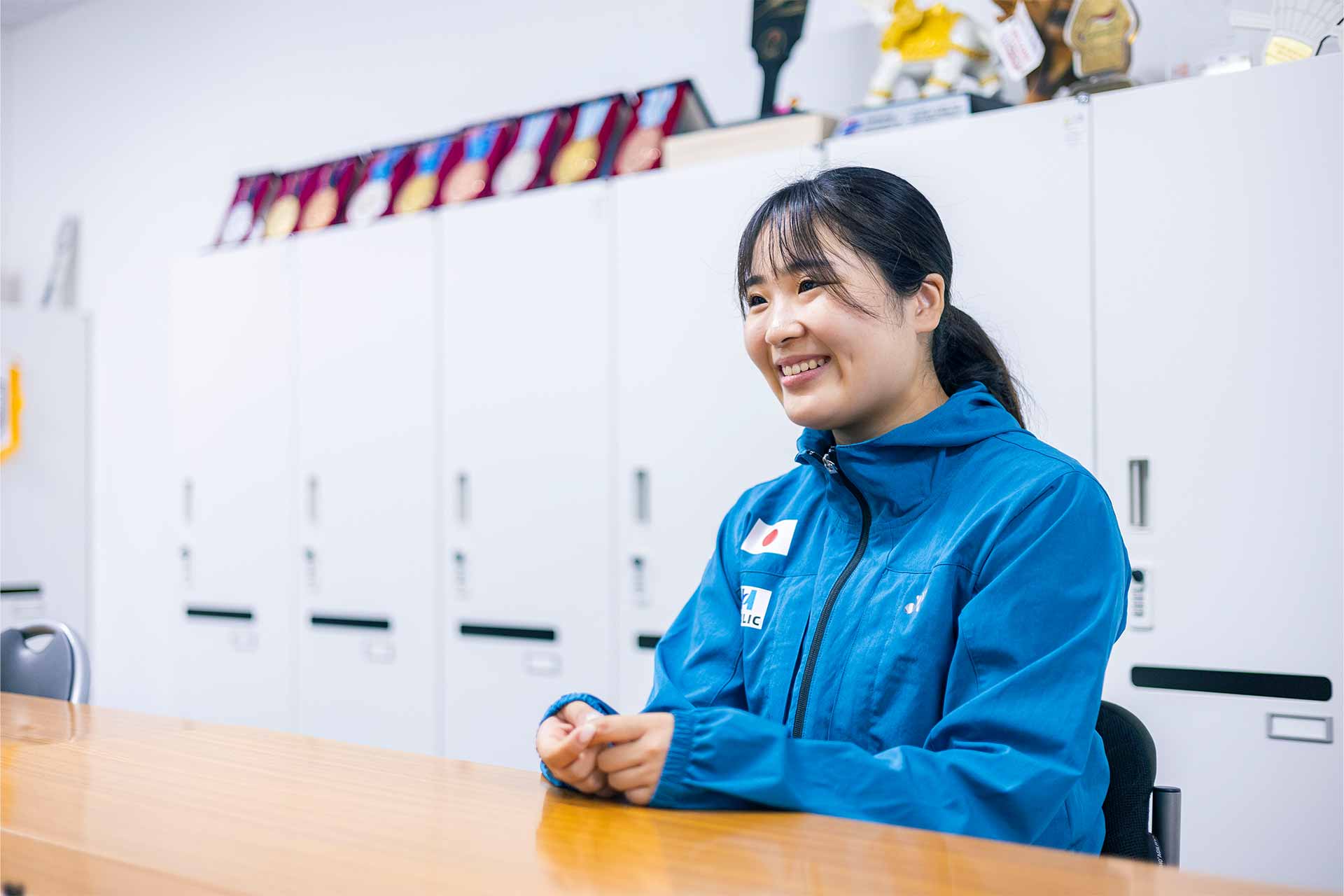
You were in the badminton club in junior high school. What was your first impression when you went to a para-badminton club for the first time?
“I was impressed by how much fun everyone seemed to have as they were playing. I was also surprised to hear that some members of the club lived by themselves. That surprised me because I was thinking that I would have to spend the rest of my life relying on people to help me get around. That’s why I was so inspired by these people that were not only able to live independently, but also be serious about sports. It was kind of exciting to think that I could also enjoy living my life like they do. I started going to that club because I was excited to meet my wheelchair buddies and have fun playing badminton with them.”
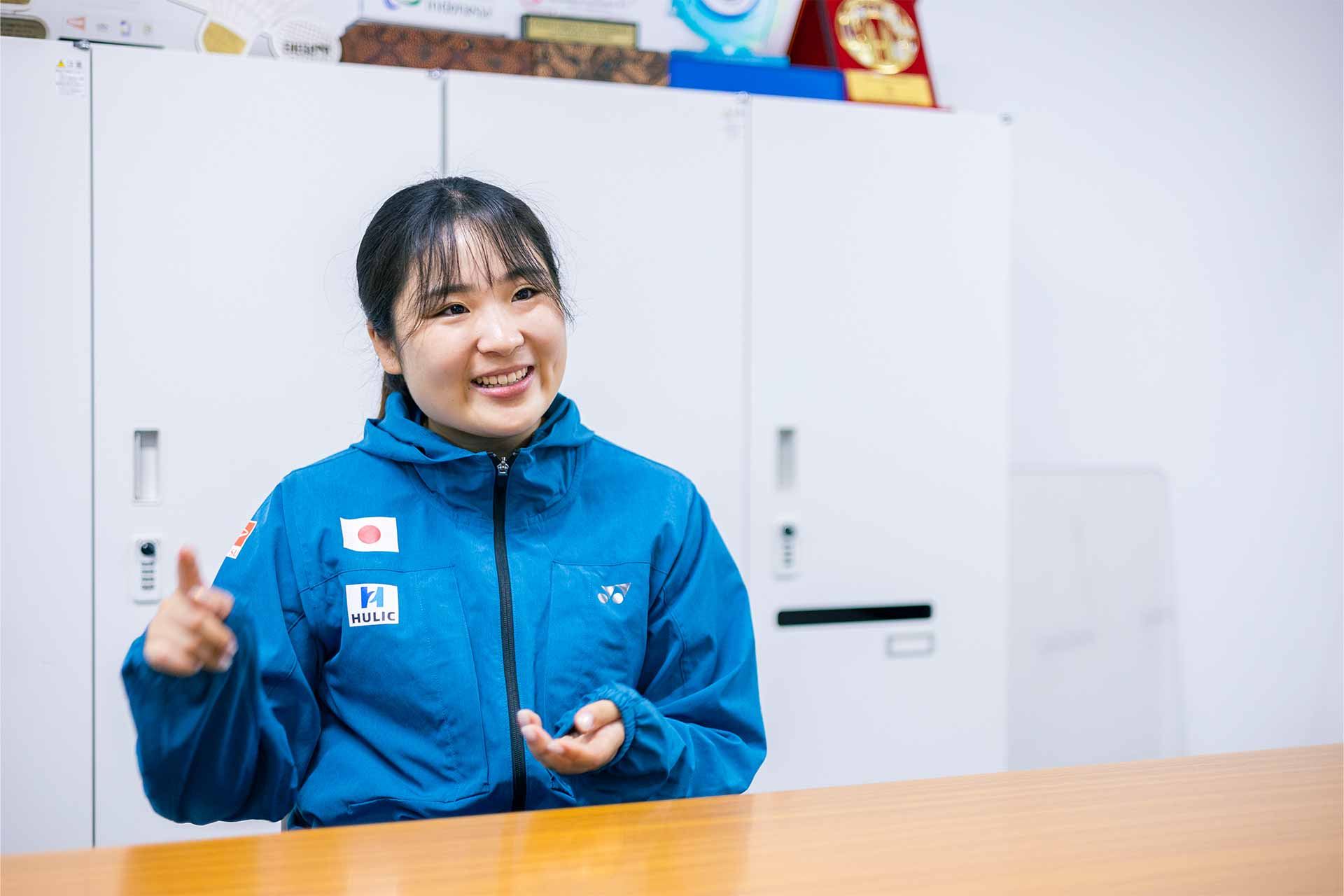
From your point of view, what do you find particularly enjoyable about para-badminton?
“The rules are basically the same as regular badminton in that if the shuttlecock falls on your side of the court 21 times, you lose. You just keep hitting the shuttlecock to make sure it doesn’t hit the ground. And you also try to aim your hits so that your opponent can’t hit it back. Long story short, if you don’t give up and tough it out until the very end, you win. I think the simplicity of the game is what appeals to me.”
The difficulty of the game lies in the fact that you’re doing this while in a wheelchair.
“You use your hands both to maneuver the wheelchair and also to hold the racket. This made me realize how frustrating it was that I couldn’t use my legs. But my opponent is playing under the same conditions. It’s all about how quickly you can move your wheelchair and get underneath the shuttlecock. What I find the most thrilling about badminton is the way players spot their opponents’ weaknesses as they play, the tense and fast-paced competition, and the way you can use tactics to change the pace of the game. I have a tendency to say stuff out loud while I’m playing, so if the shuttlecock is in a difficult-to-reach spot, you may hear me shout things like, ‘Please! Reach it!’ For me, the best part about para-badminton is that I can put my heart and soul into my playing.”
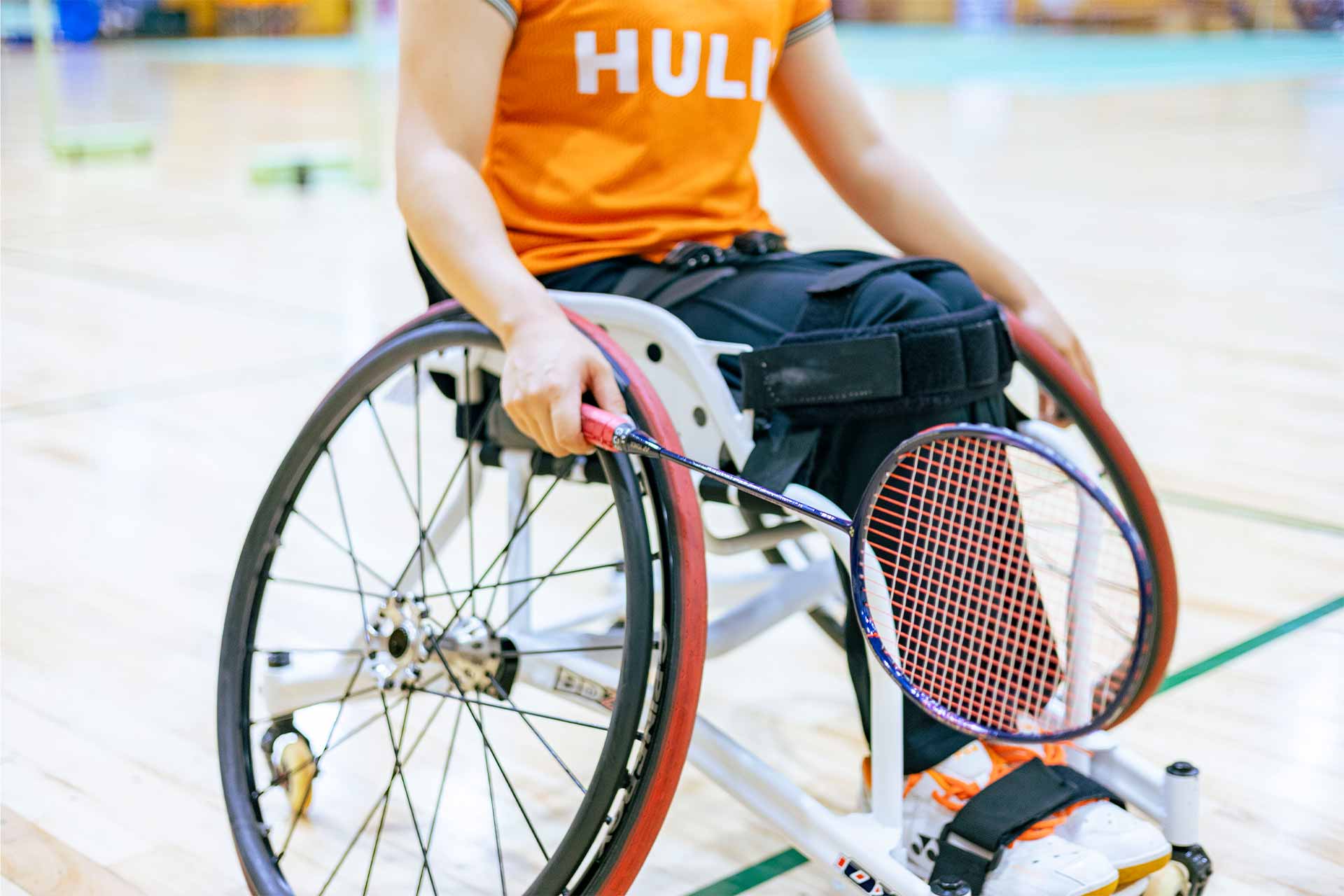
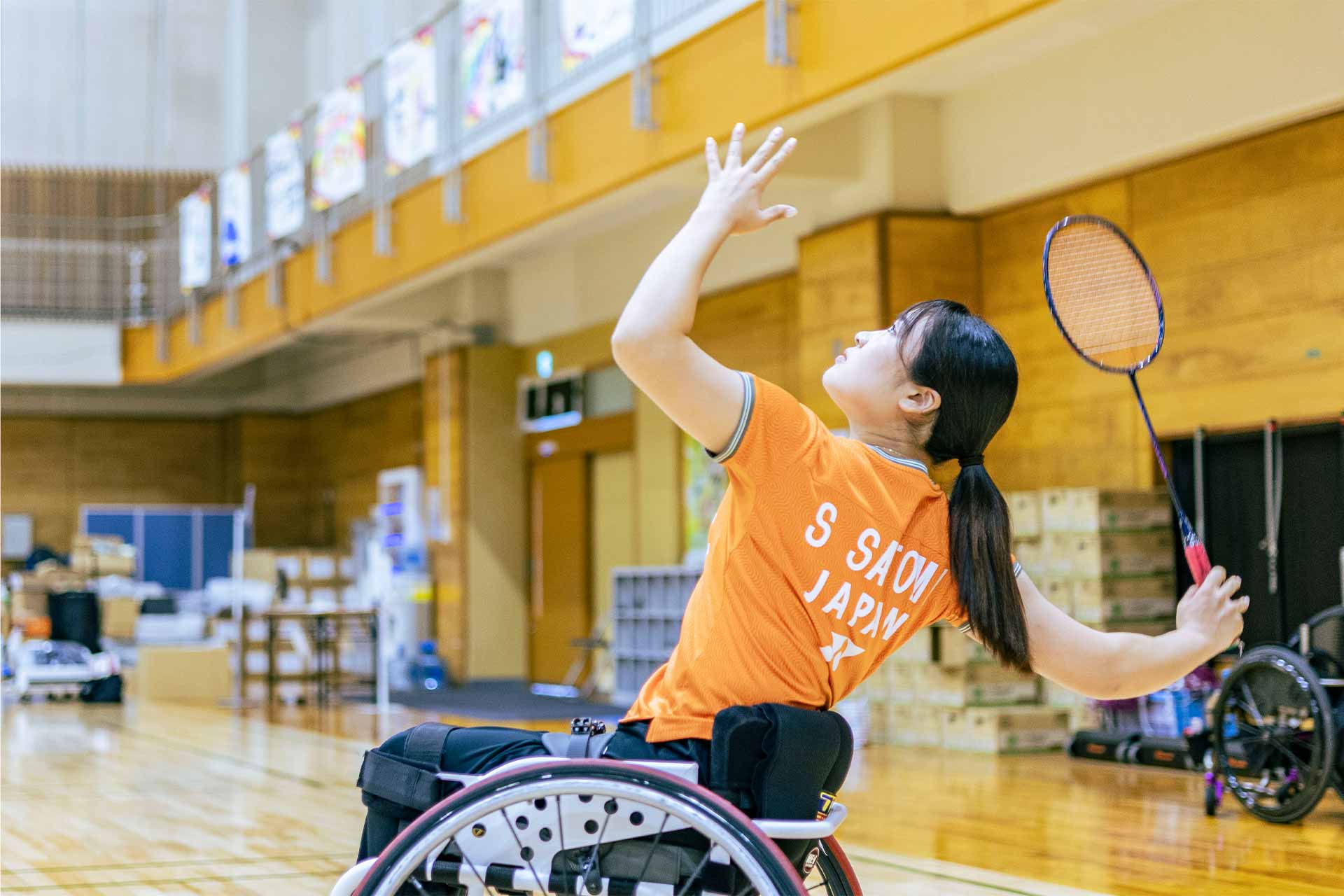
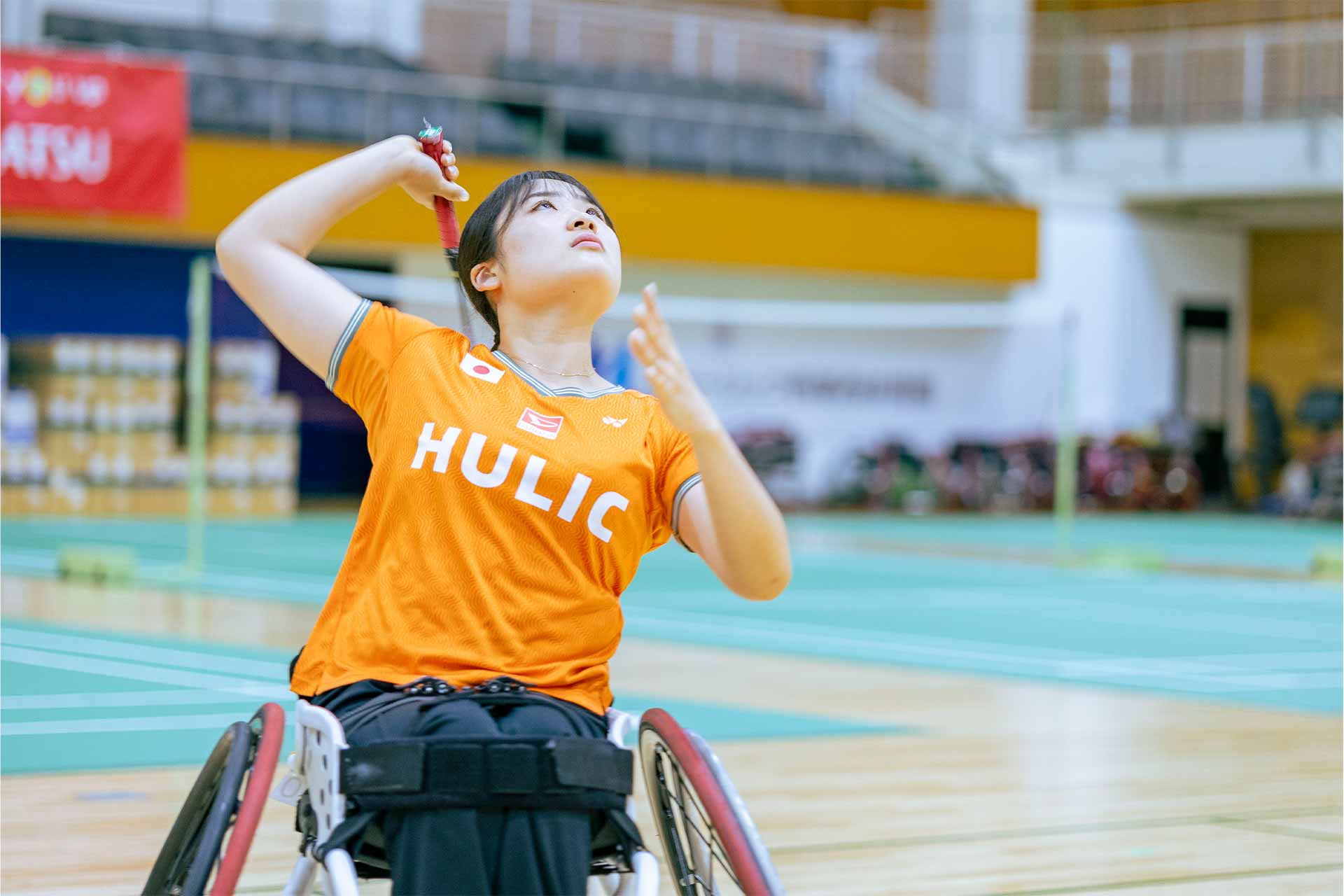
About one year after your accident, you discovered para-badminton, and that is where your life as an athlete began.
“At first, I didn’t think I would get into it so seriously. What really got me motivated was when I got beat pretty soundly at a competition I entered three months after I started playing competitively. My opponent was a member of the Japanese national team, so of course I was going to lose, but it was still frustrating for me. The competitive nature that had always been dormant within me was suddenly awakened.
All of a sudden, I had this rush of feelings inside me all at once: ‘I want to get stronger! I want to win! I want to compete and leave my mark!’”
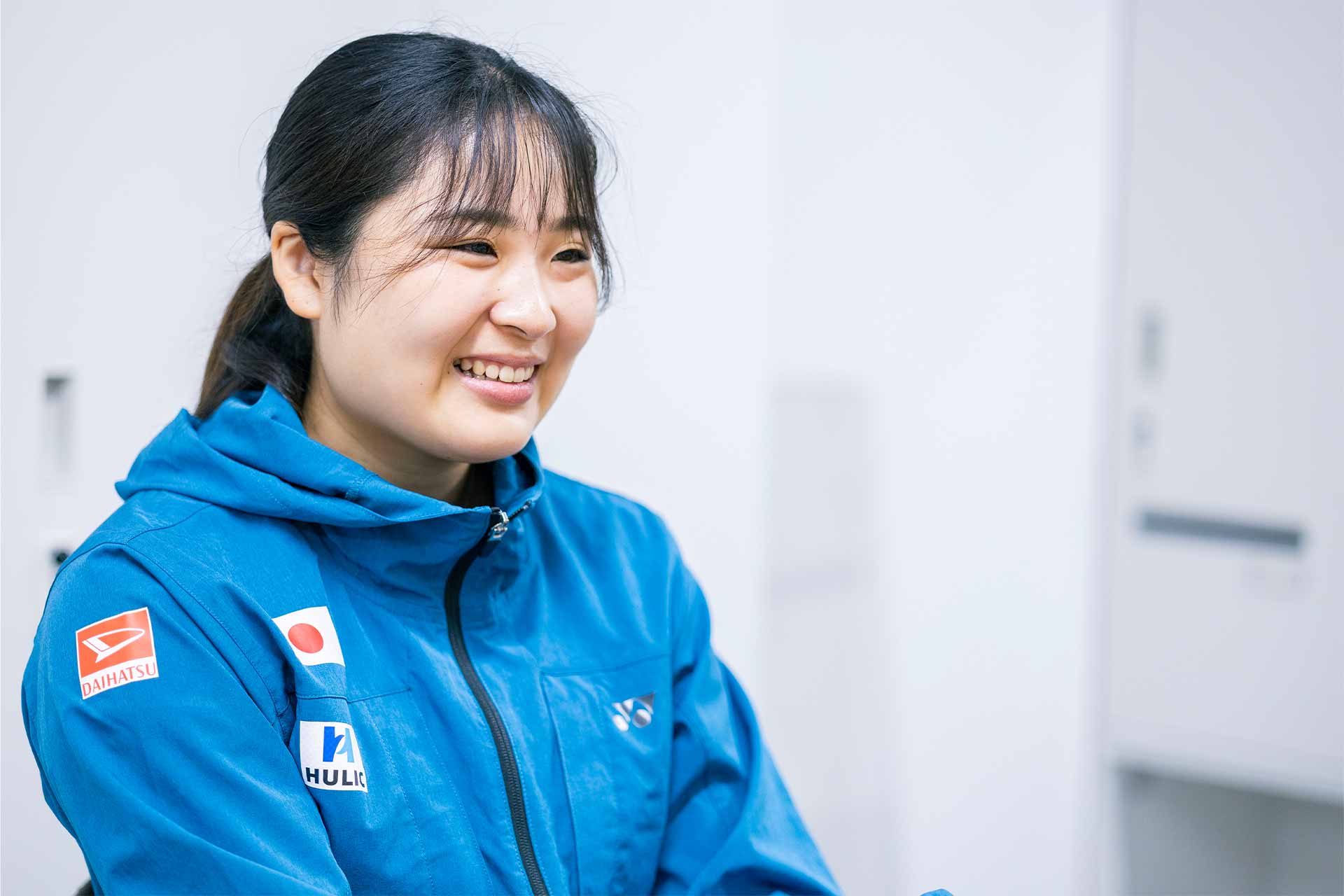
After playing competitively for just two years, you won the singles competition at the TOTAL BWF Para-Badminton World Championships 2019. You then went on to achieve the amazing feat of winning gold medals in both the women’s singles and doubles events at the Tokyo 2020 Games.
“One thing I can say with absolute certainty is that I didn’t make it this far on my own. The support that I’ve gotten from my coaches and teammates makes me want to win even more, and makes me feel like I need to win. Sometimes we have our matches in our opponents’ home countries, which actually fires me up even more. For example, if I get a point, the audience will boo me, and if I make a mistake, they start cheering. In times like that, I think to myself, ‘If I can win in this kind of away-game situation, it would be so cool!’”
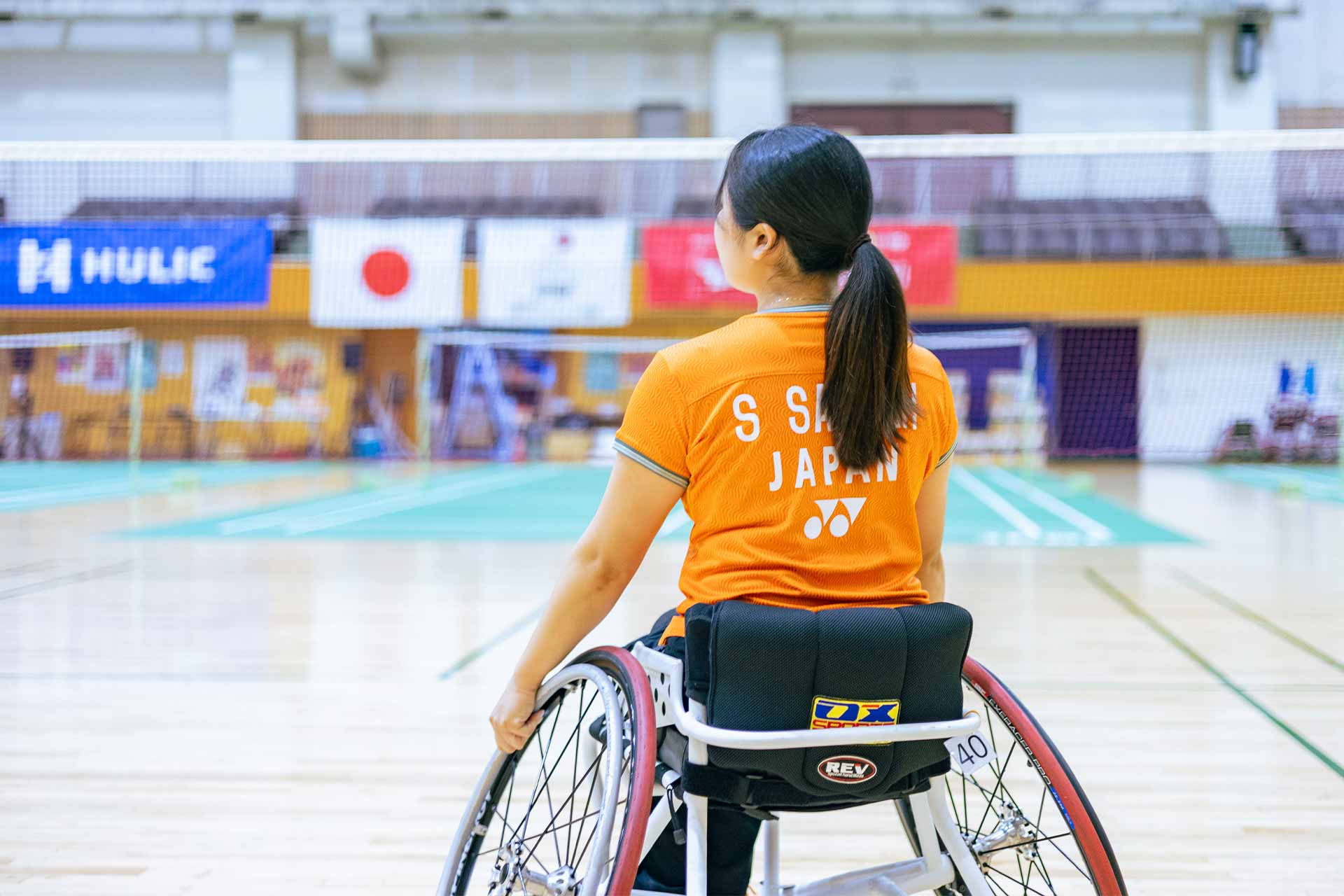
At the Tokyo 2020 Games, your strength in the face of adversity was on full display.
“I lost to a player from China in the singles qualifying round. I thought it was a match that I could win, so when I lost it was a real shock. I couldn’t afford to lose at this point in the Games. With this in mind, I got in touch with my trainers, coaches, family, and other people who had supported me along the way, and I asked them for a lot of advice. Rather than just stewing in agony all on my own, I wanted to put my mind at ease and sharpen my focus through the calm perspectives of those around me and casual conversation with them. Thanks to their help, I was able to approach my remaining matches with a more positive mindset.”
As a result, in the semifinals, you had a rematch against the player that you lost to in the qualifying round, and you changed your tactics and won the match in straight sets to advance to the finals. Then the gold medal match was a nail-biter that went all the way to the final game.
“I lost the first game 14-21, then in the second game I led through the first half of it, but my opponent came back from behind, and at one point the score was 15-18, so I was on the verge of defeat. But I knew I couldn’t lose my nerve there, and I was able to make another comeback and take the second game. I didn’t want to lose no matter what, and I was determined to win and be the first champion of this new event. In the end, I won the third game 21-13 and took home the gold medal. The sense of accomplishment and the feeling of all that pressure being released at that moment is something I’ll never forget.”
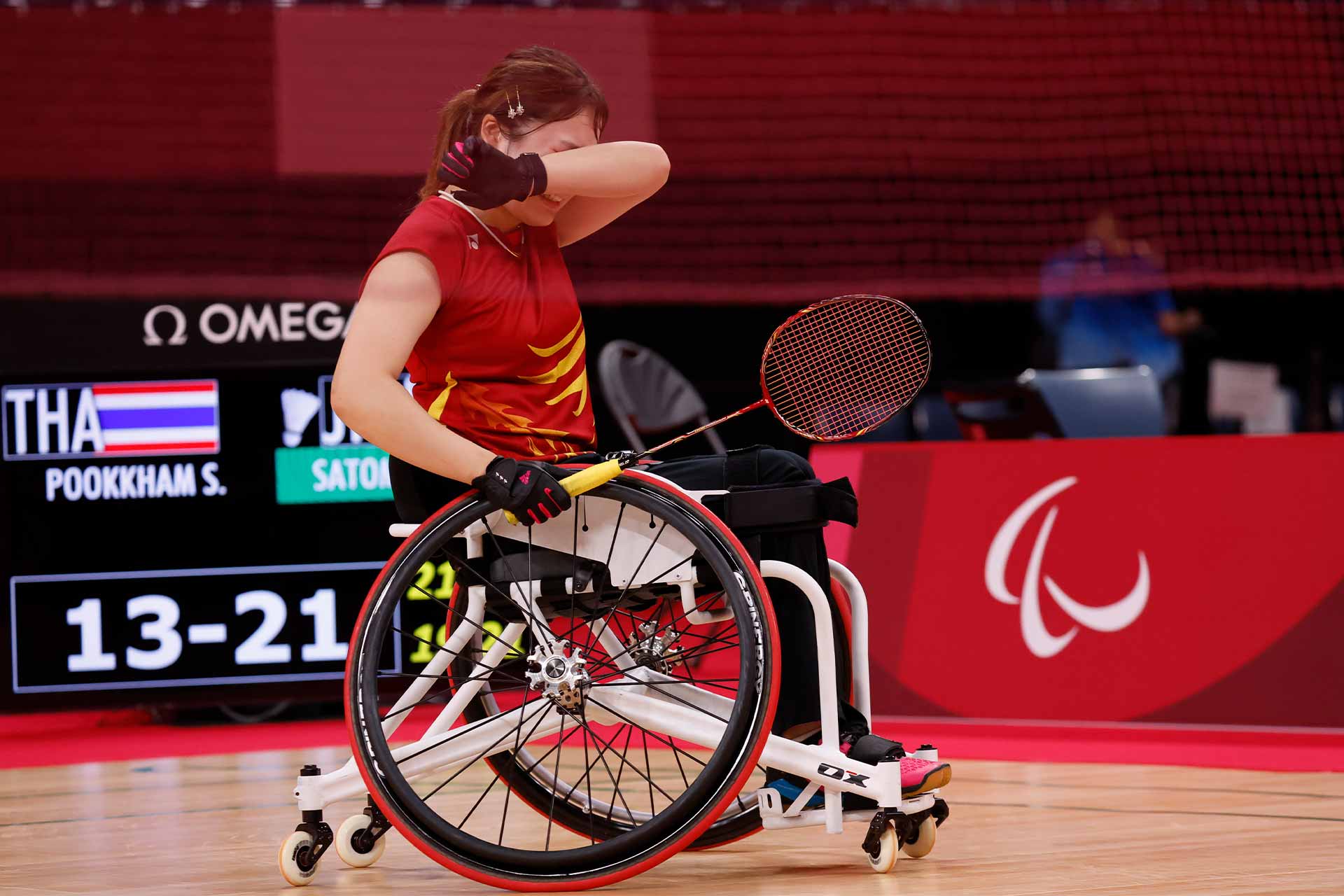
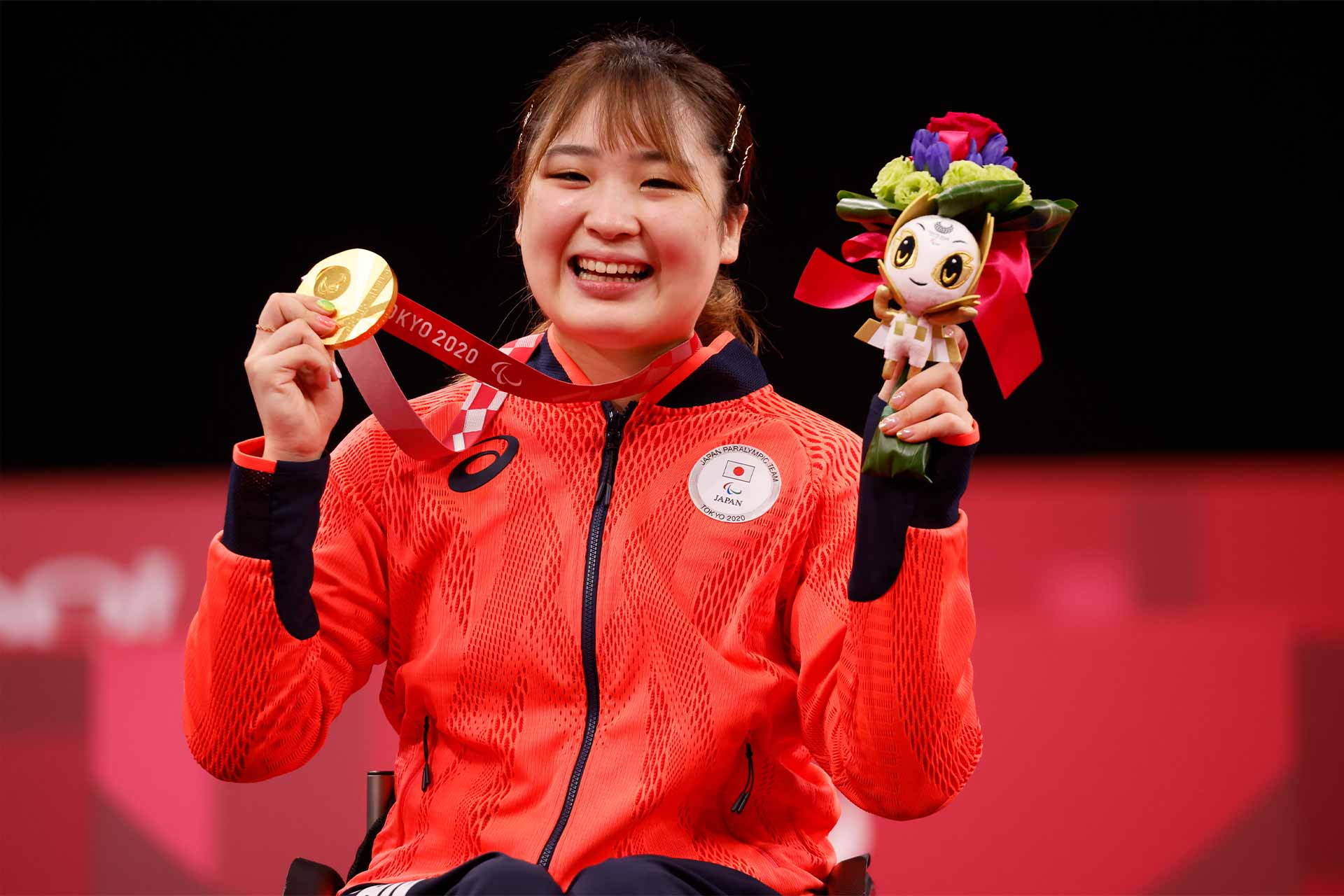
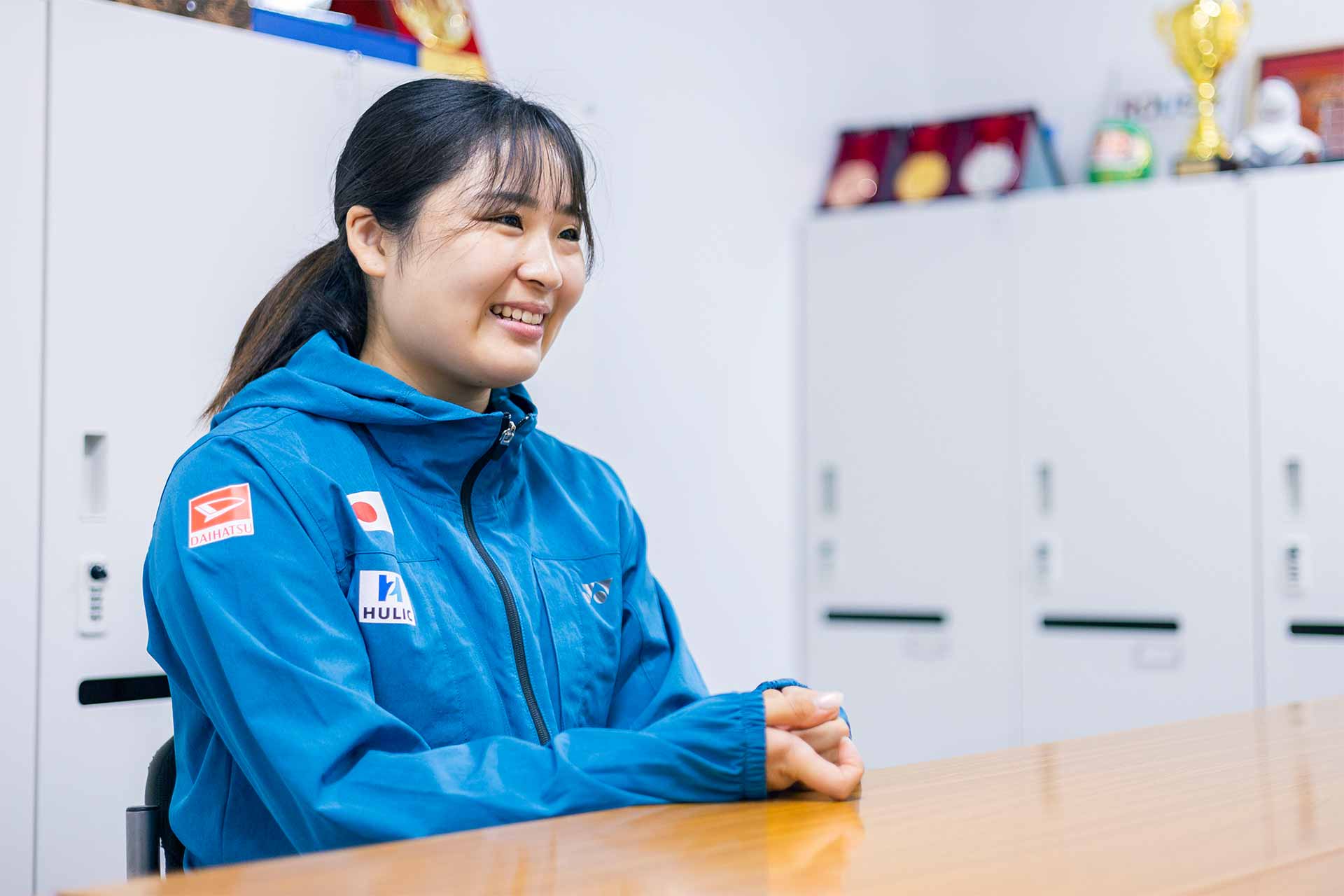
At this moment, you’re in the very prestigious position of being ranked #1 in the world in the para-badminton women’s singles ranking. There are high expectations for you to win a second consecutive gold medal at the Paris 2024 Games.
“I’m in a position where everyone is chasing after me, and they study my tactics before challenging me to a match. And on top of that, there’s a lot of pressure on me to win. Honestly, it’s scary. But of course, I want to win. I want to be at the top of the podium again and bring joy to everyone. At the last Games, there were a lot of times when I made people really nervous, so this time I want to play in a way that lets them feel comfortable and cheer for me. That’s my goal this time. The time difference between Japan and Paris is pretty big, but I’ll do my best to bring joy to the people of Japan in a way that will help wake them up.”
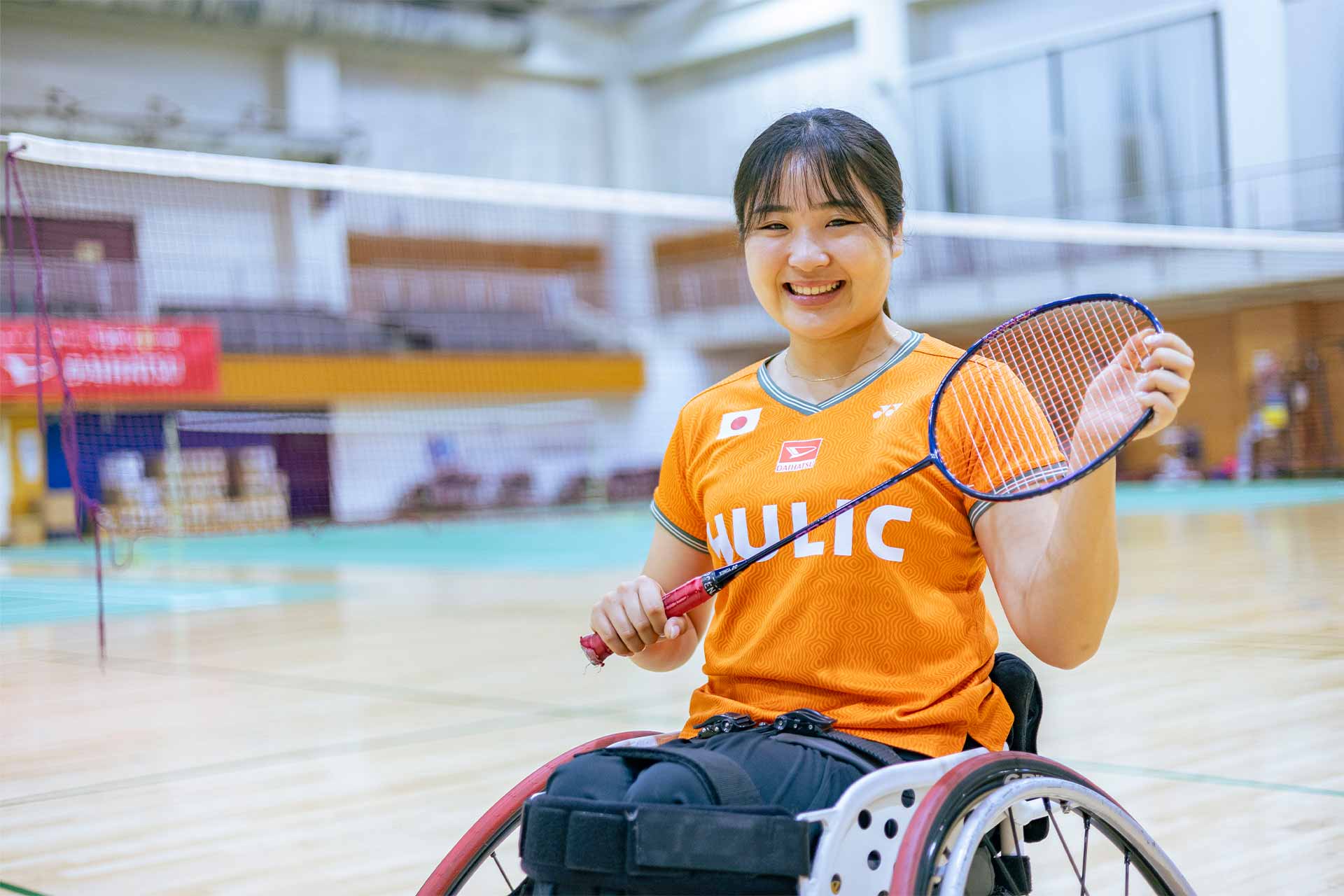
You say that your life began to shine after you became a wheelchair-user and discovered para-badminton. When you have time off, you say that you like to breathe in the fresh air and feel the changing of the seasons that only Japan can offer.
“In the early spring, the air changes from the cold winter air to warmer air. You can sense the coming of autumn when the air has the fragrance of the sweet osmanthus. One thing I especially like about Japan is that you can tell when the seasons are changing not just by the dates on a calendar, but also by the feeling and scent of the air wherever you go. When I want to go somewhere for a change of pace, I like to visit Komachi-dori in Kamakura. It’s easy to get around there even in a wheelchair, and my way of sightseeing when I’m there is to see the sights while eating warabi mochi (Japanese confection made from bracken starch jelly covered with roasted soybean flour) and dango (glutinous rice dumplings). It’s a great place for wheelchair users as well as for visitors from abroad, so please give it a visit.”
<Profile>
SATOMI Sarina
Born in 1998 in Chiba Prefecture. Member of NTT Urban Development. In her third year of high school, a spinal cord injury she sustained in a traffic accident resulted in a disability affecting both of her legs. One year later, in the spring of 2017, she started playing para-badminton. At the Total BWF Para-Badminton World Championships 2019, she won the women’s singles competition and placed 3rd in the women’s doubles. At the Tokyo 2020 Paralympic Games, she achieved the amazing feat of winning gold medals in both the singles and doubles events. At the HULIC DAIHATSU BWF Para Badminton World Championships 2022, she won the women’s singles and doubles competitions. At the NSDF Royal Beach Cliff BWF Para-Badminton World Championships 2024, she placed 3rd in both the women’s singles and doubles competitions. Her current goal is winning her second consecutive gold medal at the Paris 2024 Paralympic Games.